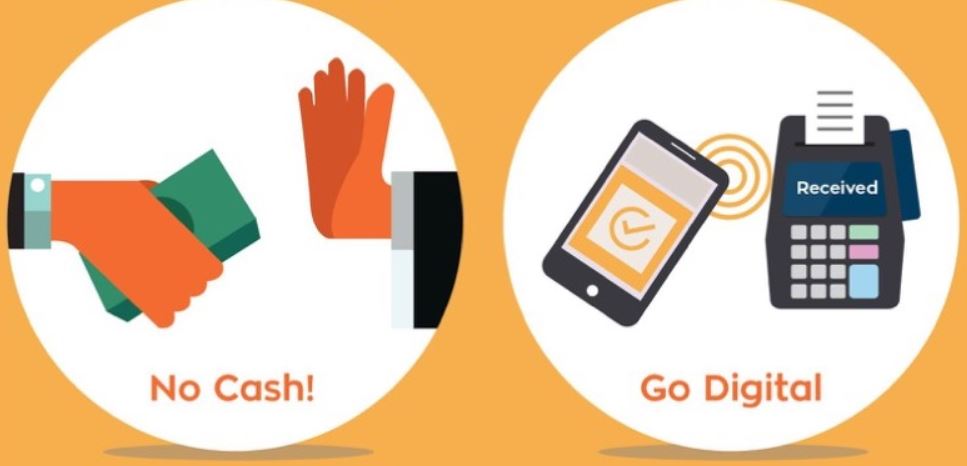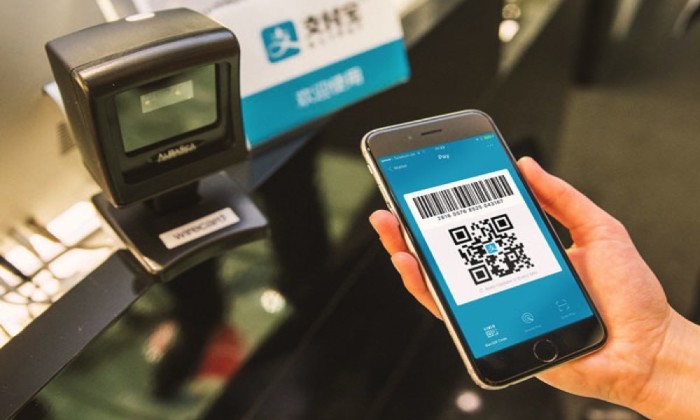Are We Ready To Go Cashless?
Bullbearbursa
Publish date: Sun, 08 Jul 2018, 08:31 PM
Source: https://bit.ly/2KYFuMy
Did you ever experience that, somehow you are a bit hungry or thirsty, you come down to the convenient store right under your house to buy some snacks, only realize that you forget to bring your wallet, which makes you can’t buy small little stuff that you want, and you are lazy to run back all the way to your home just to grab your wallet.
Obviously, this kind of situation has been greatly improved after the trend of electronic payment started.

However, in Malaysia, electronic payments are not really popular. According to a study by Nielsen Holdings, a market research firm, 78% of Malaysian citizens use their smartphones to explore social networks; only 34% of people use it to purchase products and services. Most Malaysian nationals still maintain a wait-and-see attitude towards electronic payments. The main reason for Malaysian less likely using electronic payments are due to security considerations. For most people, the mobile payment supervision system is not perfect. Even in today's technologically advanced era, most people in Malaysia still prefer traditional cash payments or credit cards and debit cards, which is still a long way from the trend of universal electronic payment.
In contrast, China, the trend of electronic payment has developed to the point of being used by majority of the people. China’s electronic consumption are escalating rapidly in recent years. According to a report released by the China Internet Network Information Center in January this year, as of the end of last year, China had 469 million mobile online payment users, with an annual growth rate of 31.2%; the usage rate of online mobile payment by netizens increased from 57.7% in the previous year to last year. 67.5%. In addition, half of Chinese netizens use mobile payment settlement when shopping online.
For the Chinese people, electronic payments have become commonplace. Whether it is supermarkets, high-end restaurants, cafes, or even roadside stalls, AliPay and WeChat Pay, which are popular in China, have already covered all the scopes. By that, China has officially shifted from the previous RMB era to the cashless era.
Compared with the electronic payment technology and the degree of use in Malaysia, Malaysia’s electronic payment standards are simply a small one in front of China’s giant. However, we are not backward. In Southeast Asia, Malaysia's electronic payment technology and standards are still at the leading edge. With the addition of Alipay, Malaysia has made a quantum leap in the field of electronic payment, and Malaysia has officially taken the first step towards the cashless era.
After the successful implementation of the first step, what is the future of electronic payment in Malaysia? In May of 2016, the Central Bank of Malaysia, referred to as the National Bank, once said that it did not receive any license for electronic payment city enterprises. At the same time, the National Bank also pointed out that WeChat payment and Alipay have not yet obtained authorization from them. However, after a lapse of one year, Alipay has quietly emerged in Malaysia and has now entered large supermarkets and convenience stores in a short period of time. Although the establishment of Alipay in Malaysia is mainly to facilitate Chinese tourists to facilitate their shopping in China, it is undeniable that the rise of electronic payment in Malaysia in such a short period of time has become an unstoppable trend.

In addition, we just experienced an unprecedented reform in the just-conceived 509 election. This reform is the first time in Malaysia and is enough to be the biggest reform in Malaysia's history. This reform has undoubtedly injected a strong shot into the development of the trend of electronic payment. The reason for this is because the new government has a very ambitious ambition for network reform and electronic technology. The newly appointed Minister of Communications and Multimedia, Gobind Singh, puts pressure on Malaysian network providers shortly after taking office, demanding that all broadband prices be reduced 25%, allowing the people to enjoy the same service quality at a cheaper price, reducing the cost of network use. In addition, Gobind Singh also strives to broaden the network coverage of Malaysia to all corners and must make the universal use rate of the network in Malaysia reach a new height. Such reforms will definitely help accelerate the growth of electronic payment technology in Malaysia, which will make Malaysia's universal electronic payment more convenient and universal, and will benefit all citizens.
Looking at the history of China's electronic payment development, from the era of online banking in 2003 to the era of comprehensive mobile payment in 2010, China spent a full 7 years to convert such a large country into a cashless country. But don't forget that during the 2003 period, electronic payment technology was not completely developed and applied. Nowadays, electronic payment technology has emerged with a mature attitude. In addition, the creation of China has provided us with good reference value. We believe that electronic payment can quickly flourish in the future, and Malaysia may be enough to form a large scale after 5 years. The commercial circle, and the concept of universal electronic payment can also be shaped at that time.
All in all, whether it is willing or not, the cashless era has gradually come. It is undeniable that electronic payment is a new trend in the future and will be a new direction for the entire economy. After experiencing the technological changes that have come to the face of the book, are you ready to experience the reform of technology and technology again, ready to welcome a new face of the economic system?
More articles on Bullbearbursa.com
Created by Bullbearbursa | Oct 28, 2019
Created by Bullbearbursa | Sep 23, 2019
Created by Bullbearbursa | Feb 13, 2019
Created by Bullbearbursa | Dec 31, 2018
Created by Bullbearbursa | Dec 03, 2018



















Tom ...
The key to going cashless is QR code! We yet to see retailers adopting QR code! So far online shopping are booming here! In fact Malaysia is among highest online shoppers! So yes, we already in cashless stage except not yet on retail side!
2018-07-08 20:58